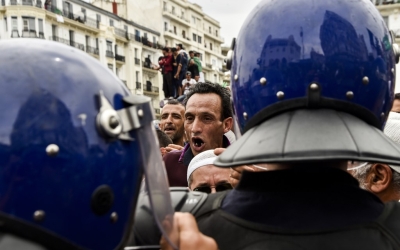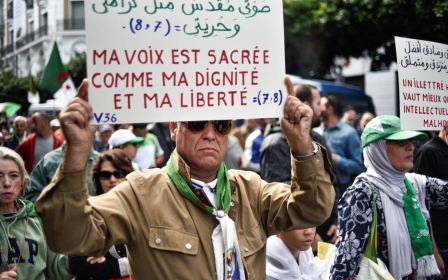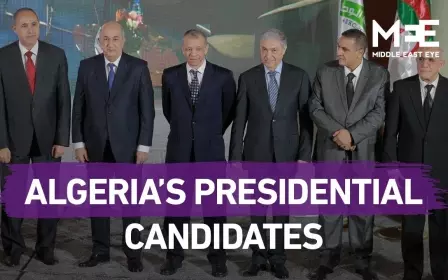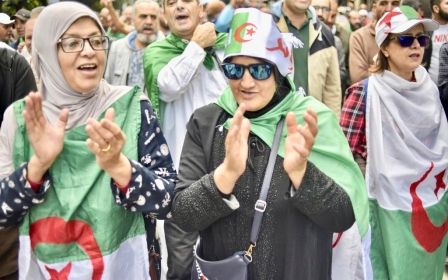Algerian court jails four protesters for disrupting presidential election
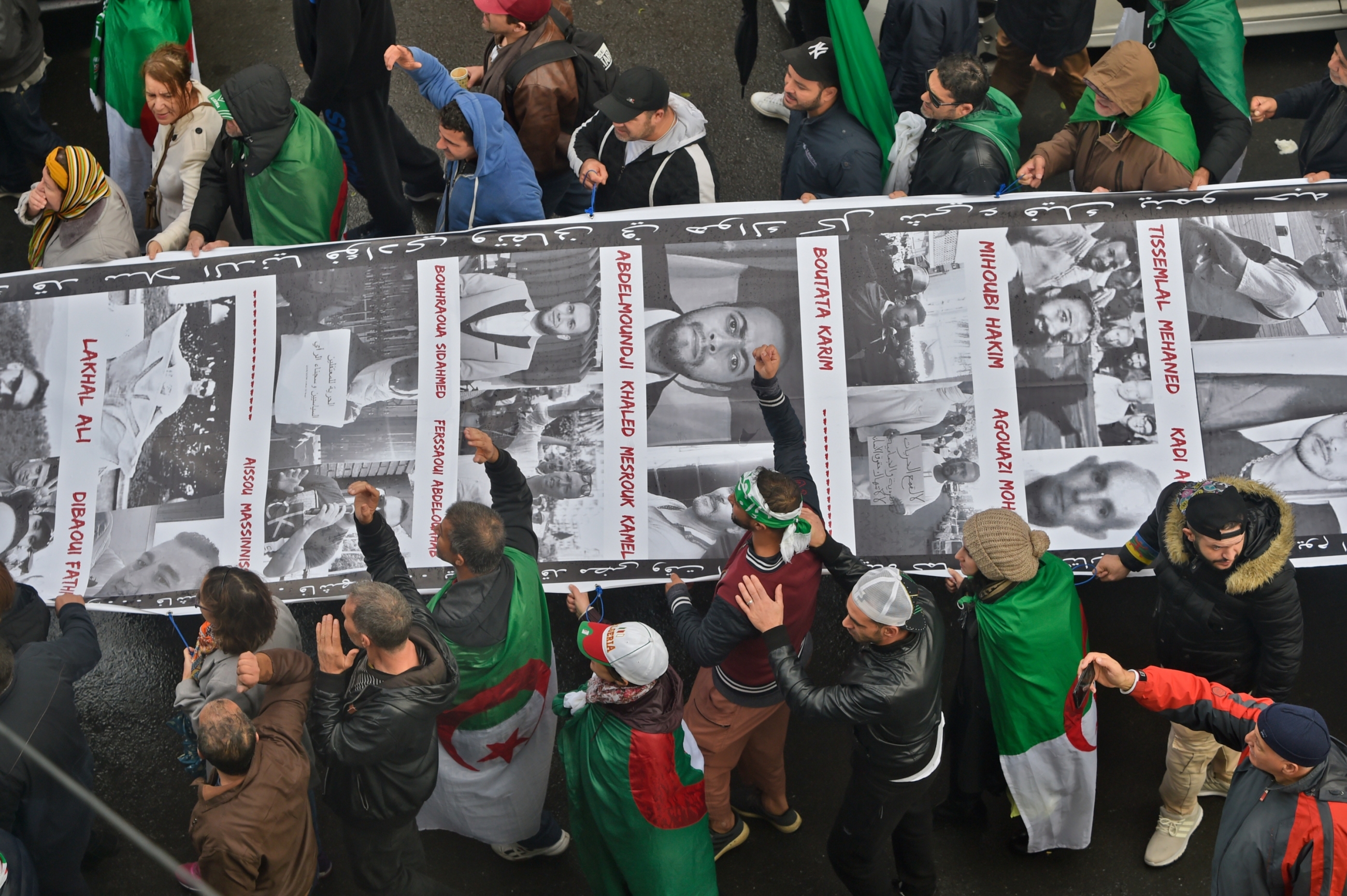
A court in Algeria has sentenced four protesters to 18 months prison terms for disrupting a candidate’s campaign ahead of next month’s presidential election, which is opposed by a mass protest movement.
The court passed the sentences on Monday following protests a day earlier in the western city of Tlemcen, where one of five candidates, former prime minister Ali Benflis, was campaigning.
The ruling comes as the country remains wracked by anti-government protests against a planned December presidential election.
Algeria's authorities are trying to quell a mass movement demanding the departure of the country's ruling elite, an end to corruption and the army's withdrawal from politics.
The judgement comes a week after a series of prison sentences were handed down to protesters who had raised flags with Berber symbols during earlier demonstrations.
Stay informed with MEE's newsletters
Sign up to get the latest alerts, insights and analysis, starting with Turkey Unpacked
Several opposition leaders have also been held during the protests and charged with contributing to damaging army morale.
The authorities, however, have also detained numerous current and former senior officials on corruption charges, and have jailed some of them, including the once untouchable former intelligence chief.
Human Rights Watch said last week that the arrest of scores of protesters looked like "part of a pattern of trying to weaken opposition to Algeria's interim rulers and their determination to hold presidential election".
The Algerian president's office has been vacant since longtime leader Abdel-Aziz Bouteflika resigned in April following mass protests against his intention to run for a fifth term.
The Hirak protest movement was formed in February to demand that Bouteflika resign, and has been backed by Algerians from all walks of life, including lawyers and judges.
Since then, Algerian protesters have continued to demand the dismissal of corrupt politicians and individuals who had close ties to Bouteflika over his two decades in power.
Activists are demanding sweeping reforms in the oil-rich country before any vote takes place, and say Bouteflika-era figures still in power must not use the presidential poll as an opportunity to appoint his successor.
The protesters say that election, now scheduled for 12 December, should not be organised until those officials are removed from power.
They have also accused the country's leaders of seeking to install a Bouteflika-like replacement as president.
Still, the country's powerful army chief, Ahmed Gaid Salah, has insisted that election be held to break the current political impasse.
A previous attempt to hold a vote in July failed after only two candidacies were submitted, both of which were deemed invalid.
In March, more than 1,000 judges said they would refuse to oversee the election scheduled for April if Bouteflika was a candidate. The judges said they would not act against the will of the people.
Abdelkader Bensalah is currently the country's interim president.
Algeria's electoral committee has said five candidates, including two former prime ministers, will be contesting in next month’s presidential election.
All five are seen as part of the political establishment that has been the focal point of discontent for protesters.
Benflis was prime minister under Bouteflika but later set up an opposition party and unsuccessfully ran against him in the 2014 election.
Abdelmadjid Tebboune, another former prime minister, was sacked by Bouteflika within 90 days after clashing with one of the former president's allies.
Azzeddine Mihoubi was a culture minister under Bouteflika for years, while Abdel-Aziz Belaid was a senior member of the ruling FLN.
The fifth candidate is Abdelkader Bengrina, a moderate Islamist who was tourism minister.
Hirak's opposition to the election has set the poll up as a showdown over turnout - with the army and ruling establishment hoping for enough participation to ensure the legitimacy of a new president, but many observers are expecting high abstention.
Middle East Eye delivers independent and unrivalled coverage and analysis of the Middle East, North Africa and beyond. To learn more about republishing this content and the associated fees, please fill out this form. More about MEE can be found here.


